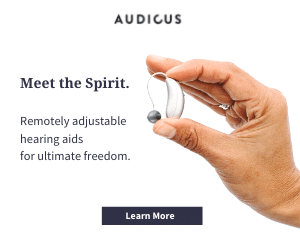Hearing loss is a critical public health issue that carries a significant social and economic cost. Decibel Therapeutics, a biotechnology startup based in Boston, is pursuing a comprehensive approach to developing precision medications for hearing and balance. We talked with Decibel’s chief scientific officer, Michael Su, Ph.D., about that work. Su and his colleagues will present their latest research at the Association for Research in Otolaryngology (ARO) conference in Baltimore, Maryland from February 9-13, 2019.
BT: Dr. Su, thanks for taking time to answer some questions on the topic of pharmaceutical treatments for hearing loss. Let me start by asking you how would you characterize the current unmet need in hearing loss treatments?
MS: In the past few decades we’ve seen improvements in assistive technology (for example, hearing aids, cochlear implants and hearing loops) for people with hearing loss. Unquestionably, these devices have helped many people around the world. Having said that, they fall far short of replicating normal hearing function, which is deeply connected to how we express ourselves, learn, work and navigate the world. We urgently need better solutions, including precision therapies to prevent hearing loss before it occurs and to restore function after it has degraded.
BT: In your expert opinion, why is now the right time to develop therapeutics for hearing loss?
MS: The inner ear is a beautiful but incredibly complex organ. For decades, the scientific community lacked the tools and capabilities to build a sophisticated picture of hearing function. In recent years, however, scientific breakthroughs have given us the ability to decode hearing biology at the molecular, cellular and electrophysiological levels. Single-cell RNA sequencing is one such tool, enabling us to characterize the unique molecular signatures of dozens of cell sub-types in the inner ear, providing insight into new targets for drug development.
BT: What differentiates Decibel from other organizations pursuing hearing loss therapies?
MS: I think what sets us apart is both the breadth and depth of expertise we’ve assembled here at Decibel. As an analogy, think about an orchestra. The Boston Symphony Orchestra, which plays less than a mile from our office, employs over 100 musicians who have to work together as a team to conceptualize a piece, practice and perform. Instead of musicians, we have assembled a team of hearing biologists, bioinformatics and genomics experts, ENTs and audiologists, chemists, drug developers and entrepreneurs. Instead of musical instruments, we have cutting edge research and audiology equipment. Like an orchestra, we bring this diverse ecosystem together to make something bigger than the sum of its parts. In our case, that means working to develop medicines that could one day change the lives of millions around the world.
BT: What research are you presenting at this week’s Association for Research in Otolaryngology (ARO) conference in Baltimore?
MS: I will be giving a talk during the Presidential Symposium, which this year is focused on treatments for age-related hearing loss. I plan to outline Decibel’s approach to developing targeted treatments for select patient populations and talk about the importance of a precision approach to address age- and noise-related hearing loss disorders.
Decibel also has three additional podium presentations and seven poster presentations at the conference, where we’ll share our advances in gene therapy and other modalities. Our presence at ARO has grown significantly over the years and we are delighted to have such a large contingent of scientists sharing their work in 2019.
BT: What do you hope that people take away from your team’s presentations at ARO?
MS: Hearing loss is not one single condition, but rather a constellation of conditions with diverse etiologies. Consequently, developing treatments for hearing loss requires a precise understanding of disease biology and the ability to deliver the right drug to the right patient at the right time. Decibel’s clinical and preclinical research programs span gene therapy, biologics and small molecules, and will be delivered in a range of ways, including oral, local injection, and direct delivery to the cochlea. We’ve built this comprehensive platform to enable us to bring a precision medicine approach to the inner ear, and I hope that attendees at ARO will walk away with an appreciation for the progress we’ve made in this regard.
Above all, we want to make it clear that we and other companies are actively pursuing treatments that could transform daily life for people with hearing loss. It’s not a sci-fi curiosity from the distant future. It’s happening in labs right now. At Decibel, our mission is to make the benefits and joys of hearing available to all and our whole team is determined to make that happen.
The details of Decibel’s ARO presentations can be found in the ARO program book here.









Please send me information on the regeneration of hair cells. I have hearing loss and would like to know more about your clinical trials.
I have significant high pitch hearing loss- Would I be a good candidate for your clinical trials?